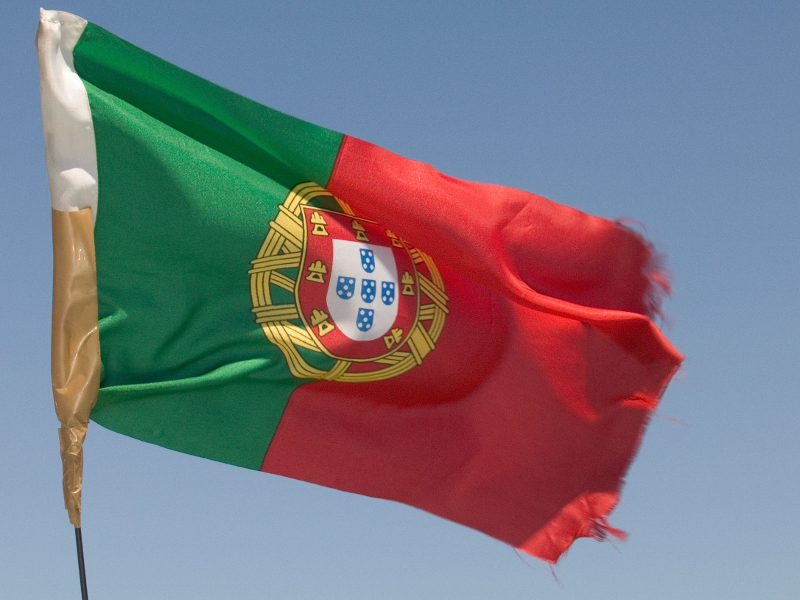
That may be a surprising question to some, given that the country is currently very much in the spotlight, hosting the EU presidency, writes Colin Stevens.
But, with some worrying warning signals, it’s still a question now being asked.
Portugal joined the EU in 1986. Back then it was a small-closed economy, with very poor human capital. The country struggled to catch up with its European peers and, from 1995 to 2001, household debt rose from 52% to 118% of disposable income and non-financial corporate debt from 81.5% to 149.8% of GDP.
Portugal was forced to turn to the EU and the IMF for financial assistance.GDP fell 7.9% and employment declined by 13.4% while unemployment surged to 17.5% in 2013.
It is worth remembering that, as relatively recently as 2011, Portugal was mired in a deep recession and was blocked off markets.
Today, Portugal’s economy faces a number of fresh hurdles to a swift recovery from the health crisis.
In the first half of 2020, economic activity dropped by 18% compared to pre-crisis levels and, for many, the crisis is a stark reminder of Portugal’s chronic underinvestment in public services and the “hidden” frailty of its economy.
The all important tourism sector is set for a post crisis boom but, for every glitzy new hotel and fancy restaurant in Lisbon, the country’s creaking infrastructure remains.
This is coupled with a total debt close to 120 percent of gross domestic product, which is one of Europe’s highest,
The budget deficit, once 11 percent of GDP during Portugal’s 2010-14 debt crisis, has been almost eliminated under the Socialists but that has come largely at the expense of public investment.
Public investment represented 2.1 percent of GDP in 2018, up from 1.5 percent in 2016 but still less than half of the 5.4 percent registered back in 1960.
A recent report by the respected International Monetary Fund found Portugal had net public investment of about negative 1.2 percent of GDP in 2016, putting it at the bottom of a list of 26 rich countries, including Greece, Italy and Spain.
Each of these countries have hit the headlines in recent years with endless stories about their failing economies but,oddly, little has been reported by perhaps even worse problems in Portugal.
To make matters worse strikes and protests have been staged recently by public workers, from prison guards to teachers and nurses, demanding better pay.
Economist Steven Trypsteen said, “The Portuguese economy has a number of characteristics that make it more vulnerable to both the initial shock of the pandemic and its aftermath. Fiscal space of Portugal is also relatively low, as the government debt-to-GDP ratio stood at 117% last year. The debt level is high and will increase sharply.”
All this contrasts with recent comments by Portuguese finance minister Mario Centeno,also Eurogroup President.
In a speech headlined “from sick man to poster boy: Portugal’s successful recovery from the euro crisis” he admits the Portuguese economy and society have endured a “difficult period of adjustment” but that it was is a “good story of an economy reforming and benefiting from it.”
The results have, he says, been dramatic and the script has changed.
“Today,” he declared, “Portugal is on the news again, but for good reasons.With all this, can we dub Portugal a “poster boy” of Europe? I do believe Portugal’s recovery provides a good example for Europe.”
Despite his optimism there are real challenges ahead with the Portuguese debt still very high. The aim is to reduce public debt to 102% of GDP by 2022 and more will have to be done to fully restore credit flows.
A recent IMF review of the state of the country’s economy says that, while Portugal is recovering after the crisis, its economy continues to suffer from “meagre growth, weak investment, and competitiveness challenges.”
Its banking sector holds too many nonperforming loans and public debt remains high, says the IMF review which also finds Portuguese economic recovery to be “slow”.
Unemployment has declined since the peak of the crisis but, says the IMF, it is still high, especially among the youth while there is “a vicious cycle” of high nonperforming loans, excessive leverage, and low growth.
Since coming to power in 2015, Prime Minister Antonio Costa’s Socialists have focused single-mindedly on restoring fiscal credibility but some economists fear a lack of public investment is starting to undermine the economy. Worse, this could be storing up trouble should another recession come.
The next big test will come as the country emerges from the crisis. Portugal will receive grants worth more than 4% of GDP over the next two years from the European Next Generation EU fund. Many are asking how effectively will this huge sum be dispersed.
The support package is worth a cool €1.55 billion. This months, Portugal announced it would give around €5 billion from the EU recovery fund to companies over the next five years in a bid to reboot the economy and increase competitiveness after the COVID-19 pandemic.
The Portuguese plan will soon be sent to Brussels and Costa says Portugal aims to come out of the crisis stronger.
But whether that is the case remains to be seen.
Over the coming weeks, EU Reporter aims to take a closer look at Portugal and whether it really can live up to its ‘poster boy’ image.




















